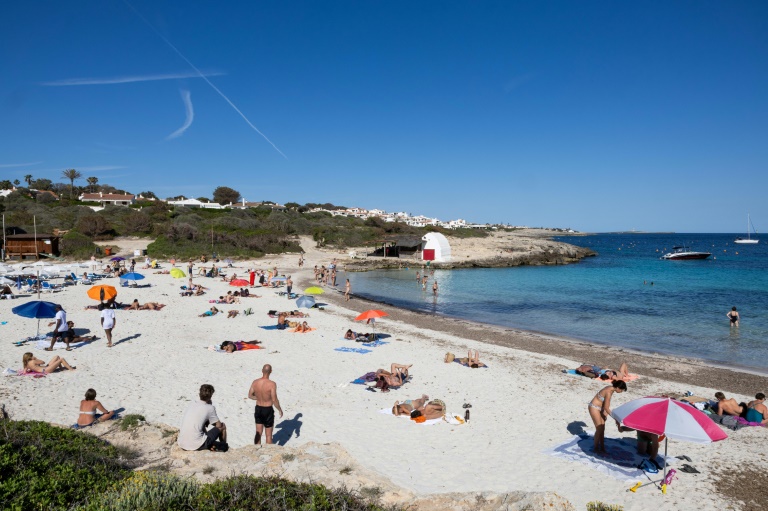Derided as “Club Medication” countries throughout the European financial obligation crisis 15 years earlier, the economies of Spain, Greece and Portugal are now surpassing their northern peers thanks to a rebound in tourist.
The 3 countries needed to withstand severe austerity steps in the early 2010s enforced by their European Union partners, who fasted to blame their financial laxity and absence of competitiveness for their financial problems.
However “the scenario has actually altered” because the Covid-19 pandemic ended, stated Zsolt Darvas, an economic expert at Bruegel, a Brussels-based think tank.
“Today, those nations are growing much faster than the European Union average, they are no longer viewed as black sheep.”
Spain’s gdp (GDP) broadened by 2.5 percent in 2015, while Portugal’s economy grew by 2.3 percent and Greece by 2.0 percent.
That compares to development of 0.4 percent for the whole 27-member European Union, which was weighed down by Germany’s 0.3 percent contraction, making it the world’s worst-performing significant economy in 2023.
The International Monetary Fund anticipates the 3 countries to continue to exceed this year, although at a more modest speed.
It sees development this year of 2.4 percent in Spain, 1.7 percent in Portugal and 2.0 percent in Greece.
Spain’s economy is removing “like a rocket”, Spanish Prime Minister Pedro Sanchez stated just recently. The nation is “the engine” of task development in the EU, he included on Thursday.
– ‘Excellent efforts’ –
Financial experts state this turn-around is mostly due to a strong rebound in tourist, which reached record levels in 2015 following the lifting of pandemic travel limitations.
The sector is crucial for the 3 countries, representing nearly 25 percent of Greece’s economy, and 12 percent in both Portugal and Spain.
The trio of countries are likewise gaining from the EU’s huge pandemic healing fund, whose mix of grants and loans in exchange for structural reforms will mostly go to southern nations.
Spain — the most significant recipient of the fund after Italy — has actually up until now gotten 38 billion euros, Greece 15 billion euros and Portugal 8 billion euros.
The 3 countries have actually likewise made “terrific efforts to enhance their financial appearance” with structural reforms that have actually improved their competitiveness and enhanced their labour markets, stated Darvas.
The reforms have actually assisted draw foreign financial investment, particularly in renewable resource and cloud computing.
Amazon’s cloud computing department AWS revealed last month it would invest over 15 billion euros to broaden its information centres in Spain.
Lots of car manufacturers such as Volkswagen and Stellantis, whose brand names consist of Peugeot, Fiat and Jeep, have actually picked to assemble their brand-new electrical lorries in Spain, Europe’s 2nd biggest auto manufacturer after Germany.
– Obstacles stay –
The development spurt in the 3 nations, nevertheless, is partially capturing up after the high falls in GDP throughout the monetary crisis. Greece’s GDP for instance plunged 25 percent.
Financial experts alert they still deal with obstacles.
While they have actually all seen joblessness fall, the joblessness rate in Greece and Spain sits above 11 percent, method above the EU average of 5.9 percent.
And previous European financial and financial affairs commissioner Olli Rehn informed AFP that “deficits and financial obligation levels stay big in many cases” although “divergences in between euro location nations have actually reduced compared to ten years earlier”.
Portugal swung to a spending plan surplus of 1.2 percent of GDP in 2015 while Greece’s public deficit decreased to 1.6 percent in 2023 from 2.5 percent in the previous year. The EU average is 3.5 percent.
This has actually assisted its 10-year interest rate to drop to 3.5 percent from 13 percent throughout the monetary crisis.
Darvas stated the “merging” of southerrn European countries with northern ones “is most likely to continue” however at a “slower speed”. Spain, Portugal and Greece still have “work to do,” he included.
hec-lf-vab/ds/lth/pound
